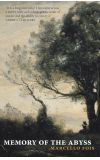
19 Aug 2012 19:58:54
Samuele Stochino, the Tiger of Ogliastra, was one of the more famous Sardinian bandits of the early 20th century. Born in 1895, the son of a goatherd, in 1915 he was conscripted and sent to Libya. Court-martialled in 1916 for disobeying orders, after eight months in a military jail he was released for good conduct and sent to the Austrian front, where his exploits won him promotion to sergeant and a silver medal for valour. A few months after returning home he was arrested for pig-rustling, but soon managed to escape and went on the run. Under Mussolini's policy of zero tolerance for outlaws, Stochino's family was targeted in an attempt to flush him out: the Blackshirts intimidated his father, burned his grandparents' house down and had his sister arrested. Fighting back, he committed a dozen murders over the following years, until he was shot dead by carabinieri in February 1928. Or so Italian Wikipedia says. At the end of Memoria del vuoto, now translated into English as Memory of the Abyss, the Sardinian novelist Marcello Fois warns his readers that "what you have read is not the truth": "Samuele Stochino is a historical character, though at the same time legendary. Samuele Stocchino (with double "c") is the twice-over legendary character whose story is told in these pages."
In Fois's fictionalised version, Stocchino enlists in the Italian army when he's 16 (he lies about his age) and is shipped out to north Africa in the invasion fleet of 1911. Interestingly, and unusually, by changing the story in this way, Fois is making the protagonist of his novel less heroic than his historical counterpart: according to the Wikipedia biography, Stochino is by turns anti-colonialist, Italian patriot and anti-fascist. Fois's Stocchino, a colonial subject sent to conquer new colonies, is far from reluctant to serve in north Africa and finds a profound pleasure in stabbing Bedouin soldiers with his bayonet. He learns in Tripoli that he "liked killing more than fucking". He loses his virginity to a very young prostitute – "make no mistake about it, she was still a child" – who's much more eager for sex than he is. The killing and the fucking both make for uncomfortable reading.
In Fois's novel, it isn't fascism that turns Stocchino into a killer then punishes him for it, but the pre-fascist Italian state. At least, that's one way of reading it, or one way of reading one aspect of it. Another strand of the novel takes a fatalistic view of Stocchino's story. He is born with a wolf in his heart; the Libyan campaign merely allows it to grow its fangs.
Fois combines a remarkable number of different ways of seeing the world, different forms of storytelling, different kinds of language and different narrative voices in this short novel: Memory of the Abyss is by turns epic, fable, love story and thriller; the point of view moves between an omniscient narrator, free indirect style, village gossip, official dispatches and first-person stream of consciousness; the language switches between Italian and Sardinian, between poetic flights and short, hard-boiled sentences.
The simpler language works better in English than the more high-flown, to which Patrick Creagh, the translator, occasionally does an additional disservice by not paying enough attention to what it means. The book opens with an elaborate description of the full moon on "the night of the killing", which later reappears twice (repetition is a prominent theme of the novel). Fois says that the moon is pigra di una pigrizia quasi Morte. Twice Creagh translates this as "indolent almost as death itself" and once as "slothful with an almost deathlike slothfulness". The second form at least means something – extreme slothfulness could be mistaken for death, but death itself isn't indolent – but it's odd, first, that Creagh doesn't translate all three instances of identical Italian identically, and second that he doesn't translate pigra, which is bog-standard Italian for "lazy", into bog-standard English.
It's a persistent fault, evident even before the novel gets going. Fois dedicates the book a babbo e mamma, "to dad and mum", which Creagh translates more stiffly as "to my mother and father". The opening sentence, E ora dammi le parole, "And now give me the words", is rendered as "Now grant me speech". Slang presents a problem. Both titte and seni, "tits" and "breasts", are translated, excruciatingly, as "dugs", and cane ignorante becomes "ignorant nitwit". As Jack Lemmon once said, nobody talks like that. What's wrong with "ignorant dog", or even "ignorant son of a bitch"?
But the more straightforwardly told fables work well even in English: how Samuele as a child had to pretend to be his older brother Gonario on a visit to Gonario's godfather, because Gonario had grown out of his boots but they fitted Samuele; how Samuele fell into an abyss but was saved by a juniper bush and found by a little girl who had gone missing a few weeks before. The blood-letting is convincingly Homeric (or at least, reads like many English translations of Homer), and the jokes are funny in the best tradition of blackly comic war novels.

